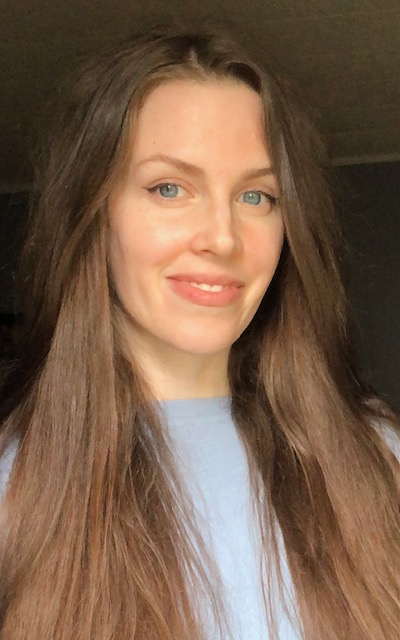Kathryn Webb-DeStefano is a PhD candidate in the Department of English at the University’s Graduate School of Arts and Sciences. Her dissertation examines how global literature, esoteric spirituality, and nationalism converged in the decade before the start of World War II to create what political theorist Roger Griffin refers to as “palingenetic ultranationalism.” Her analysis considers both literary modernism and twentieth century ultranationalism as fundamentally shaped by global movement and predicated upon an increasingly complex network of transnational exchange.
Kathryn interned with UVA’s Contemplative Sciences Center under the mentorship of Karolyn Kinane.
What are your post-PhD career aspirations?
To work in higher education in some capacity.
Please summarize your PhD Plus internship
I applied to work for the Contemplative Sciences Center after working as a TA for the J-Term Class “Buddhist Meditation and the Modern Secular World.” I was so impressed with, and moved by, everything the CSC was doing for UVA students that I knew it was something I wanted to be a part of. During my internship I worked with Associate Director of Pedagogy and Faculty Engagement Karolyn Kinane, who has been an inspiration, a wonderful mentor and a friend, to work on educational resources for the soon-to-be-launched University of Flourishing, while simultaneously developing a website for the Contemplative Lab Curriculum, an Open Educational Resource for contemplative pedagogy. Karolyn fully welcomed me into the project, providing guidance and a consistent vision while maintaining flexibility and openness to my suggestions. Together we collaborated on all aspects of the site--web design, layout, activities, bibliographies, etc. and we officially launched the website on May 21, 2022.
What professional skills did you develop during your internship?
In addition to becoming proficient with WordPress and a handful of other digital platforms, I truly grew as an educator through this experience. As I return to the classroom this semester, I am already seeing the benefits—for myself and my students—from the insights I gained working in contemplative pedagogy for the past year.
How did the internship support your career development?
This internship both deepened my passion for teaching in higher ed and broadened my conception of what a career in academia could look like—whether in the traditional classroom, for an educational resource center, or in an administrative role.
What advice would you give peers on utilizing PhD Plus internships for career development?
I would suggest learning as much as you can--new methodologies, professional communication, new digital platforms, etc. Use this opportunity to expand your skills.

